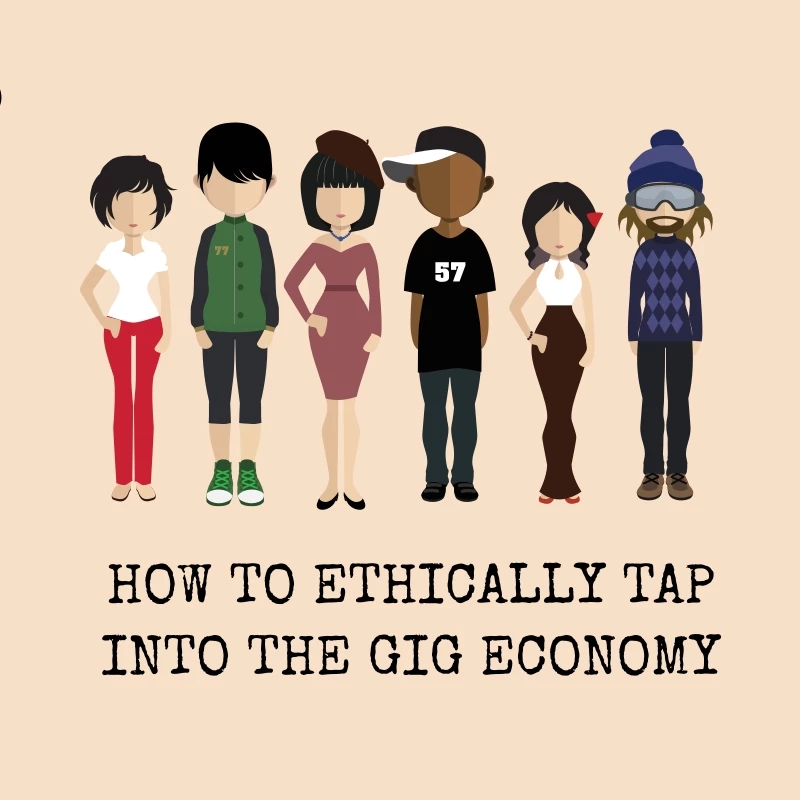
Partner Article
How To Ethically Tap Into The Gig Economy
Rarely does a month go by without the likes of Uber and Deliveroo hitting the headlines for all the wrong reasons. The companies, which use labour on a self-employed basis, have repeatedly been accused of using loopholes in employment law to leave their team members worse off.
The Work and Pensions Committee and the Business Select Committee have drawn up a draft bill which would assume “worker by default”, to force businesses to pay holiday and sick pay. It’s an issue that has been debated by MPs and Commons committees since the Taylor Review was published back in July.
It’s true that it’s a complex debate, with genuine arguments on each side.
Still though, there’s no denying that the employment market is changing, and it may well be the case that your business could benefit from using talent on a more flexible basis. You might, for example, want to explore the possibility of using freelancers, instead of recruiting permanent or temporary members of staff. Here’s how to approach that ethically…
**Know the difference between freelancers and employees **
Like we’ve touched on, this can be a minefield. It’s not always black and white, and there are several aspects of the law that you need to take into account. What’s important to remember here is that you should never seek to find a freelancer purely because you’ll have fewer responsibilities to deal with. You need to look at the bigger picture, and ensure that you’re operating ethically and within the law. If you’re unsure, consult an HR professional for tailored guidance.
**Do things by the book, and get proper documents and contracts in place **
It’s true that you’ll often have fewer responsibilities when it comes to working with freelancers, and there’ll be HR considerations that aren’t relevant or necessary. It still pays though to make sure that you’ve got the correct documentation and contracts in place. This protects your business, gives your freelancers peace of mind, and ensures the smooth day-to-day running of projects. Cutting corners is something that is likely to come back to haunt you.
**Make sure they get paid on time **
Not getting paid on time is one of the biggest challenges that freelancers face. Ensuring that you’ve got a procedure in place to pay your contractors by the due date will keep working relationships positive, and prevent any damage to your employer brand. Make sure that your freelancers have a dedicated point of contact for invoicing and administrative purposes, and don’t leave anything to chance.
**Consider the impact on your existing members of staff **
If you start working with contractors, then rumours and unease can quickly start to spread amongst your workforce. They might be worried about what this says about the future of your company, and whether their jobs may be at risk due to this change in direction. It’s completely understandable, and problems of this nature are very easily avoided. Take the time to communicate your plans with your employees, and where possible, get them involved in the process. It may be the case that you can offer a development opportunity for a member of staff to manage remote talent.
With us quickly moving towards a new year, it might be time for you to reconsider how you find and work with the very best people to drive your business forward. Will you be thinking about hiring freelancers in 2018?
This was posted in Bdaily's Members' News section by Oculus HR .
Enjoy the read? Get Bdaily delivered.
Sign up to receive our daily bulletin, sent to your inbox, for free.








 £100,000 milestone drives forward STEM work
£100,000 milestone drives forward STEM work
 Restoring confidence for the economic road ahead
Restoring confidence for the economic road ahead
 Ready to scale? Buy-and-build offers opportunity
Ready to scale? Buy-and-build offers opportunity
 When will our regional economy grow?
When will our regional economy grow?
 Creating a thriving North East construction sector
Creating a thriving North East construction sector
 Why investors are still backing the North East
Why investors are still backing the North East
 Time to stop risking Britain’s family businesses
Time to stop risking Britain’s family businesses
 A year of growth, collaboration and impact
A year of growth, collaboration and impact
 2000 reasons for North East business positivity
2000 reasons for North East business positivity
 How to make your growth strategy deliver in 2026
How to make your growth strategy deliver in 2026
 Powering a new wave of regional screen indies
Powering a new wave of regional screen indies
 A new year and a new outlook for property scene
A new year and a new outlook for property scene